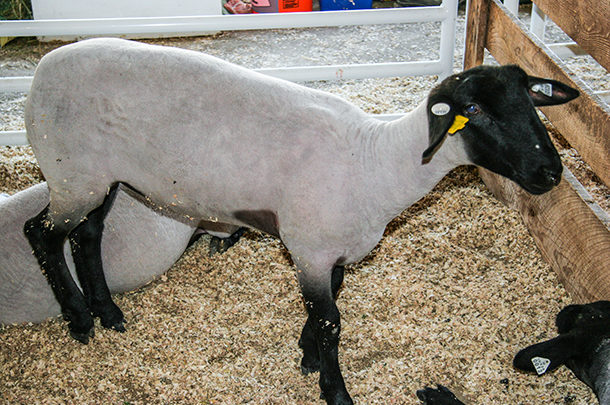And then they died.
For years afterward, I blamed myself – too much dragging around on the leash, not enough milk, too much petting and hugging. It wasn't until I married a man who raised sheep that I realized their passing had nothing to do with me.
Sheep just live to die, which is true of all living things, I guess, but most of us don't go around looking for ways to expedite the process or simply lie down one day and decide, "Oh, heck, why bother getting up? It's just eat and poop, eat and poop. Who needs the hassle?"
How they manage to go lights-out at will is a mystery. Apparently not all sheep possess the ability to just flip the switch, so they are forced to resort to suicide. A portion of our pasture had fences made of smooth wire woven into 6-inch squares. The sheep weren't allowed in there after the first two stuck their heads through the squares, flopped down and hung themselves. We also had to keep a sharp eye out for any gate rope or piece of twine with a loop in it big enough to form a noose, lest we find a sheep dangling from it.
And then there were the water hazards. My husband set out a thousand-gallon tank, 10 feet in diameter and 2 feet deep. The next morning there were two floaters. He assumed that, tempted by the stretch of open water, they had climbed over the side and been unable to get out again. He could fix that. He dragged sheets of plywood out to the tank and built a cover, leaving only an 18-inch hole where they could put their noses in to drink.
The next day, he found a dead sheep stuck head-first in the hole. He pulled it out. There was another sheep underneath. He yanked that soggy mass of wool out of the hole, only to find a third at the bottom of the tank. The last one in must have had to jump up and down on his buddies in order to create enough space to get his own head under water.
Eventually you become resigned to the fact that if a sheep isn't dead, it's only because he hasn't got around to it yet, or hasn’t found a convenient ditch where he can roll over onto his back and expire from the inability to return to the upright position. And once they're down, they rarely get up.
A friend's young son once came running into the house in a panic after seeing his ancient horse stretched out, soaking up the spring sunshine.
"Mom! Arm is down!" (Yes, the horse's name was Arm. They can't all be Trigger and Midnight.) He didn't buy that the horse was sleeping. In his experience, down was a fatal condition. Nothing would calm Rex short of dragging his mother out to the pasture, where they nudged Arm awake.
Arm was seriously annoyed at having his nap disturbed. Rex was mightily relieved to learn that a horizontal horse isn't necessarily a dead horse. And my son is about to discover he will not be getting a lamb as his first 4-H project. I’m just not up to the drama. FG
Kari Lynn Dell is a third-generation cowgirl, horse trainer and rodeo competitor. She writes from her family ranch on Montana's Blackfeet Reservation. For information on her novels, short stories and other writing projects, visit her website.
PHOTO: Staff photo.











